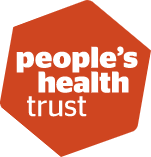Community agency, control and wellbeing
A rapid evidence review exploring the impact of community agency and control on community wellbeing.

As part of our focus on place and community, we commissioned a rapid review exploring community agency, control and wellbeing.
This page outlines the rationale for the project, how we continue to build the evidence base and implement those findings, and what’s next.
Perceptions of influence
Our 2017 conceptual review identified that a key determining factor of community wellbeing is a sense of collective agency and control, exercised when people come together to influence decisions that affect their communities and their lives.
At a national level, we know from the World Happiness Report that having the freedom to make life choices is one of the six factors that explain the variation in wellbeing between countries.
To better understand how this extends to community wellbeing, we conducted a systematic review of joint decision-making in 2018. It found evidence that deliberate meaningful involvement can maximise the beneficial wellbeing impacts of community decisions, and we want to further expand the evidence base in this area.
A whole systems approach
Previous research by Stansfield, South and Mapplethorpe (2020) suggests that community control – alongside neighbourhood belonging and social connectedness – is a key element of whole system approaches to building healthy communities and reducing inequalities. And, crucially, that each of these can be addressed by local action.
Yet, in England, only 27% of respondents to the Community Life Survey agree that they can influence decisions in their local areas.
To help explore to what extent and how improved community agency and control can lead to improved community wellbeing, we commissioned a rapid review.
Key findings from the 2023 review
The research identified common features that influence collective agency and control at the community level:
- Opportunities for community connections
- The ability to make decisions
- The availability and size of funding
- The maturity of community agency, including existing relationships
It also highlighted:
- Community agency and control’s value as a long-term endeavour.
- Communities have different starting points and do not necessarily respond in the same way when exercising their agency and control.
The research produced a full report, a briefing that synthesises finding and recommendations, and a summary intro blog. These are linked below.
Who is this for?
Anyone working with or within communities looking to use evidence to inform decision making, practice and future research.
For example:
- VCSE sector organisations creating, convening or supporting spaces for community wellbeing.
- Local authorities
- Local agencies and business
- Funders of resident-led programmes and other community-level interventions
- Policy leads
- Researchers and wellbeing economists interested in the role of community agency and control
How to use these insights
- Consider ways to use the findings in your own work, guided by the recommendations for action
- Generate new evidence by using wellbeing measurement and evaluation in your own work
- Consider how your own experience fits with the findings
- Let us know how you’re engaging with our resources, or submit an evaluation or case study that explores this topic area
Next steps
We plan to explore the evidence for both individual and workplace agency and control in due course, subject to funding. We would also like to develop a theory of change for community agency and control.
Get in touch if you are interested in partnering with us for this work.
![]()
[gravityform id=1 title=true description=true ajax=true tabindex=49]



